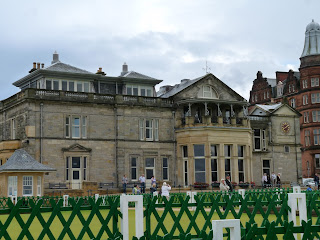Just when we thought the snow had cancelled too much excitement this festive season, the moon and the sun conspired to give us one of the greatest shows on Earth...a total lunar eclipse at the Winter Solstice...last time that happened it was 1638.
I stood in the snow, looking like a red sheep in fleecy dressing-gown and furry boots, from 6.15am, watching the moon being shaved down from a perfect silver sphere to a delicate slither. Finally the last slice of silver had gone and we were presented with an astonishing copper-toned ball, the most outsanding Christmas bauble I have ever seen.
Since the same moon shines on all of us, wherever we may be, this whole event seemed other-worldly. I wondered who else might be watching...friends further south, across the North Sea, across the Atlantic, on an oil-rig, perhaps even servicemen and woman in Afghanistan....loved ones separated from each other, despite the approach of Christmas.
As people struggle to be reunited with family and friends in time for Christmas, the weather has done its level best to put hazardous obstacles in our way. The desperate frustration of those stuck in airports, stations or on the roads, the agony of those waiting at home for family to arrive, is painful to behold. I wish all those travelling a safe journey as soon as possible.
As one of our national sports appears to be a fondness for saying how rubbish we Brits are at doing anything these days, the questions have started already. We seem to be going through some kind of international embarrassment as the rest of the planet watches Britain failing to cope with unusually ferocious weather. With one Transport Minister already having had to resign here in Scotland, one wonders how many more ’heads will roll’ before we admit that Nature is bigger than us. Especially in the winter, and especially at Christmas.
Could all this frustration be the inevitable result of ‘globalisation’? Can you believe that the very concept is one that was born Aberdeen? A friend’s neighbour was the academic who came up with the word and the concept of ‘globalisation’, an idea that seems to have taken over. (By the by, if someone would invent a universal electric plug that would function in the UK, Europe and the US, I would feel ‘globalisation’ had actually achieved something.) When the current scenes at Heathrow are broadcast across the media, I can’t help wondering if we are too quick to take ‘globalisation’ for granted.
Only last night, Norwegian crime writer Jo Nesbo was on the box talking about Norway’s vast wealth, the result of a lucky oil find in the late 1960s (I’ve bored you about all that stuff way back in spring). Reflecting on how poor Norwegians had been before oil, particularly in the 1920s when so many escaped across the Atlantic, Nesbo wondered if the soul of his nation had been damaged, if not lost in some way. While no-one would advocate a return to poverty, I know there are many Norwegians who would agree that he has a point.
If one assumes the sheer number of people on the move just now is a reflection of how our world expects everything to function flawlessly in the twenty-first century, I can’t help wondering if we’re just kidding ourselves...we assume we humans are invincible. And it turns out we in the UK are not the only struggling humans...try going through Frankfurt Airport today, try flying out of Belgium, try driving in Stavanger on last week’s ice, even with snow-tyres. I suspect we Brits are not as useless as we think we are, and I know there are thousands of good-hearted folk who are valiantly working long hours and through the night to help others. We can be world-champion complainers, if we want to be. There has been many a tale of people not saying thank you, and not being helpful, but the opposite is also true. If you ask any of the Brits who work abroad or travel for business, they will be quick to tell you that the people who hate Britain more than anyone are the Brits themselves.
As Christmas arrives, our first since returning to Scotland, I am still in a state of transition, well-aware of how Norway reached under my skin in 2010. I shall be making a note that I should count my blessings more often. And next time I see the moon, and wonder what on earth we must all be looking like from up there, I’ll repeat my favourite bit of Burns;
‘Oh wad some Power the giftie gie us,
To see oursels as ithers see us.’
Whichever part of the planet you are on, settled with family or still in transit, at home or abroad, I wish you GOD JUL and A VERY MERRY CHRISTMAS!
Dear scribbles...
-
Thank you for your emails and my apologies if the Great Silence has worried
anyone. This is to reassure you you that we are absolutely fine and well
and ha...























